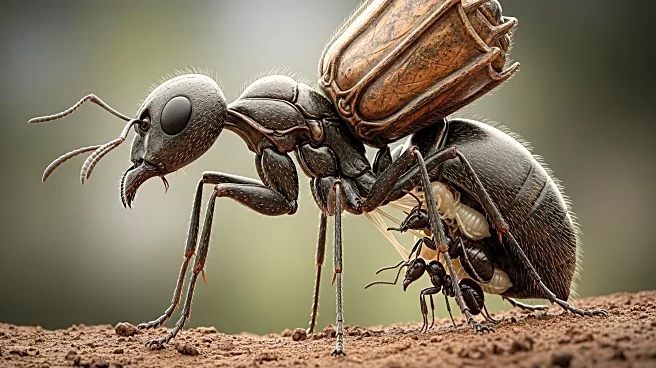What's Happening?
Recent research has revealed that Iberian harvester ant queens on the island of Sicily can produce offspring of two different species, Messor ibericus and Messor structor. This phenomenon, described as 'sexual domestication,' allows the queens to control the reproduction of another species, creating hybrid workers. The queens utilize a unique reproductive strategy, mating with males of either species to produce different types of offspring. This strategy eliminates the need for nuptial flights and allows the colony to maintain genetic diversity without relying on neighboring wild species.
Why It's Important?
This discovery challenges traditional notions of species boundaries and individuality in the animal kingdom. The ability of ant queens to produce offspring of two distinct species could have implications for understanding evolutionary biology and genetic diversity. It highlights the complexity of reproductive strategies in nature and may lead to further studies on how species interact and evolve. The findings could also influence research on genetic manipulation and conservation efforts, as understanding these mechanisms may provide insights into maintaining biodiversity.
Beyond the Headlines
The study suggests that the reproductive strategy of Iberian harvester ants could be analogous to horizontal gene transfer, a process more commonly associated with microorganisms. This raises questions about the potential for similar mechanisms in other species and the implications for genetic research. The concept of a 'two-species superorganism' challenges existing definitions of species and individuality, prompting a reevaluation of how species are classified and understood in ecological contexts.










